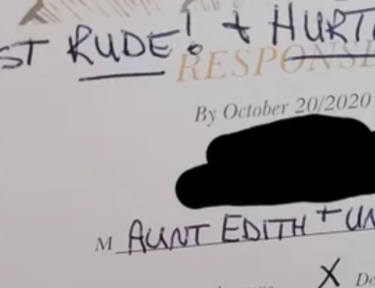Kids Who Are Frequently Read To Before Kindergarten Have A ‘Million Word’ Advantage Over Their Peers
Most parents want their children to get a head start on life basics while they’re young. That’s why reading and writing remain fundamental. How cute is it to meet a toddler with an expansive vocab?
Actually, it is much more than an adorable thing to see. According to a study by researchers at Ohio State University, children who are read to by the time they hit kindergarten have a vocabulary that is richer by 1 million words.
As it turns out, story time is the way to go – every day! Specifically, the study found that kids who are read at least five books per day are exposed to 1.4 million words when they approach grade school age. This is in comparison to children who are not being read to at all.
The study was published in a recent edition of the Journal of Developmental & Behavioral Pediatrics. Professor Jessica Logan, one of its authors, points out that the words children learn up to age five include those which are not typically used in everyday conversation:
“This isn’t about everyday communication. The words kids hear in books are going to be much more complex, difficult words than they hear just talking to their parents and others in the home. The words kids hear from books may have special importance in learning to read.
Kids who hear more vocabulary words are going to be better prepared to see those words in print when they enter school.”
Word estimates were based on average word counts found in a sampling of 60 children’s books. They included board books – generally read up to age 3 – or picture books which are read through age 5. Science Daily broke down the stats which look something like this:
“Here’s how many words kids would have heard by the time they were 5 years old: Never read to, 4,662 words; 1-2 times per week, 63,570 words; 3-5 times per week, 169,520 words; daily, 296,660 words; and five books a day, 1,483,300 words.”
When tallying up these averages, researchers also decided to give the “never read to” category a count of one book every other month. Combined with daily conversation and the extra bits of education or chat that parents give while reading each book, the numbers may be a bit higher.
Logan was inspired to dig into this subject after learning that 25% of children are never read to by a parent or caregiver. When working on a different study, she found this information to be shocking, and wanted to delve into the educational impact of reading at an early age.
Though fun, baby talk will only get us so far, so it pays to start reading and speaking to children using everyday words from birth. Fortunately, in addition to having access to libraries and brick-and-mortar book stores, there are also digital books available for us.
Many of them include rich illustrations, animation, or music to keep the little ones entertained with the story. Now, we have more than one reason to sit down for a book each evening.
Do you find these results to be encouraging? Are you already putting this in practice in terms of book-reading time and amounts? Was/is your toddler a linguist?




